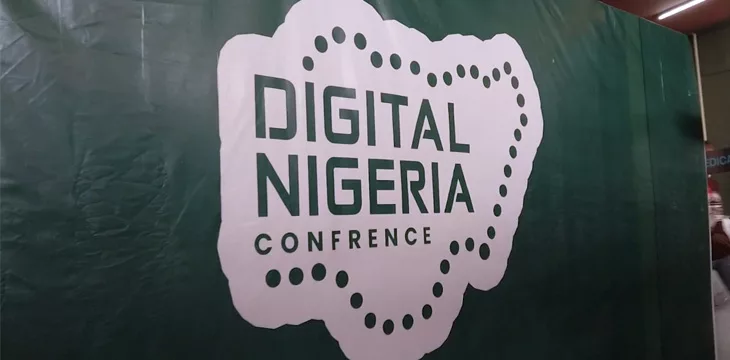
|
Getting your Trinity Audio player ready... |
Africa is now referred to as “the world’s most exciting continent,” and Nigeria is home to the largest economy in Africa. At Digital Nigeria 2023, the thirst for leapfrogging the country into the modern world was palpable, all the way from the young people in attendance to the government officials who delivered keynote speeches and graced the VIP lounge each day.
“Opportunities and events such as these and coming out of Nigeria, this is a powerhouse of this continent. It is the most populous country, more than 220 million people live here,” shared Dr. Catherine Lephoto, Digital Nigeria speaker and VX Technologies Executive Director of Global Partnerships.
“Nigerians are enterprising. They are a leader. Its a leader on the continent in terms of digital adaptation and I’m so thrilled to see that the government is buying in because I believe that they will then set the pace for the others to follow,” she said.
Digital Nigeria 2023 took place on October 24 -26 at Abuja’s International Conference Center, with a theme of “Harnessing Digital Technologies for Job Creation, Sustainable and Inclusive Growth.” Over 2,000 attendees came through the doors each day, including everything from government representatives to academia, students, entrepreneurs, venture capitalists, media, and more.
Obinna Iwuno, President of SiBAN, Nigeria’s Blockchain Association, emphasized how Nigeria is transitioning towards a digital economy while also plugging into the global digital economy.
“We need a lot of things to be put in place for us to be able to participate and position right now in that economy that we are in for and, of course, we are moving towards,” he said.
Education on the best blockchain technology in existence and how Nigerians can harness its power was a major theme of the conference, with expert speakers coming in from all over the world.
“I think Nigeria is a fascinating country because not only are there a lot of people here, also a lot of people who are interested in blockchain and cryptocurrencies and that sort of thing, but the government itself is actually trying to push education in this space,” shared blockchain speaker Lorien Gamaroff, CEO and Co-Founder of Centbee.
“What they have is official policies around blockchain to actually educate young people, entrepreneurs around blockchain, so that they can be on the forefront of this new blockchain revolution,” he said.
On the subject of blockchain technology in Nigeria, Iwuno talked about his country’s
national blockchain policy, which makes it the first and only country in Africa to have a national blockchain roadmap.
“What that specifies for us as Nigerians and as a country is that we want to see wide adoption of blockchain technology in our private and public sector,” he confirmed.
Also participating in the event’s blockchain track was Nairobi-based Apollo Eric Ohmer, CEO of Bitlipa.
“Blockchain technology is the only technology, in my opinion, that is currently leveling the playing ground. Even if you’re having corruption here and there, we are able to weed all that out because of the transparent nature of the technology,” he told CoinGeek.
“I think that we’re just getting started in terms of building our economy and bringing more and more people into the digital space because blockchain is emerging as a force to reckon with in terms of transforming Africa and reimagining it as a very, very big digital economy, I would say,” Ohmer added.
In an effort to help the audience understand exactly how blockchain technology will transform Africa, speakers Lise Li, Head of the BSV Blockchain China Hub, and Eva Porras, CEO of Blockchain Smart Technologies, provided specific examples of sectors that will benefit.
“The first one I can see that blockchain can empower the sector is the supply chain and the second one is digital payment,” Li summarized for CoinGeek after her blockchain panel.
“In Africa, in Nigeria, they have a total unique situation because the banking system is quite new, and also it’s quite expensive for most citizens living here. However, by doing digital payment, either you establish a new system but powered by blockchain, or for the traditional banking system, utilize blockchain to facilitate all of this infrastructure,” she said.
“It’s going to lower the cost of maintaining a whole digital payment system,” Li added.
When asked what sector she thinks has a lot to gain from blockchain technology, Porras pointed to agriculture.
“There is a big concern here in Nigeria. There is a large population of farmers, and they have heard so much about what blockchain can do for them,” she said.
“One of them is the tracing of the product and the counter operation of that is finding fakes, so it can clean the market for this competition,” Porras added.
In a continuous effort to educate young Nigerians in cooperation with the Nigerian government’s National Information Technology Development Agency (NITDA) and Domineum, one of the event organizers, the BSV Blockchain Association had a big presence as the headline sponsor of the event.
“Nigeria’s never shying away from dropping things which are not working and just going full on and with full confidence into new possibilities, new technologies. So I think that’s a really important mindset to be disruptive in the technology world,” shared Nico Wellinger, Global Public Sector Lead for BSV Blockchain Association.
“They are very excited about the educational programs that we are rolling out here. So I think we just need to take this momentum and work on it, and as many of the speakers said today, they want to be the leapfrogs in Africa. And well, we’re here to support that movement,” he added.
CoinGeek Conversations with Dr. Catherine Lephoto: AlphaDAPP – Revolutionizing blockchain adoption in Africa

 11-21-2024
11-21-2024


